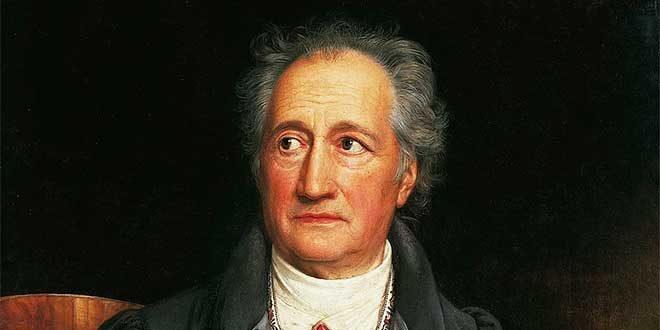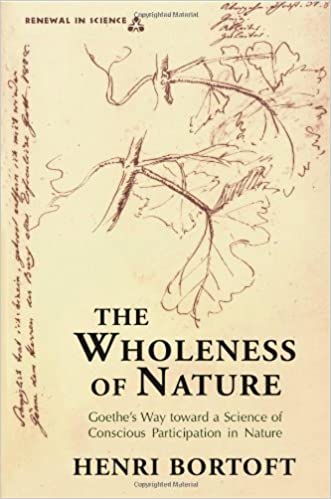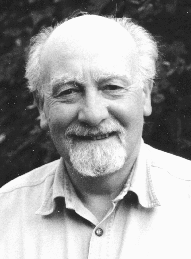How Goethe got into the DNA of the Scottish Fire and Rescue Service: Using a Coaching Approach in Cultural Understanding.

When we change our world view of how things work, we immediately see things and act entirely differently. Our usual way of thinking cheats us. It leads us to think that organisational wholes comprise many individual parts, in the same way that a car is made of wheels, chassis, axels and an engine. In this way of thinking, the whole is assembled from parts that allow it to work efficiently. If a part is broken or doesn’t work, we replace or repair it. This is a logical way of thinking about machines.
But living systems are different. Unlike machines, living systems like your body create themselves. They are not assembled from parts but are in a continual state of change and renewal. Jonas Frisen published a paper in 2005 stating that our bodies review themselves every seven years on average. Alas, some cells change more quickly than others, and you must take the rough with the smooth. The fat around my stomach will take ten years to change, whilst my liver only takes 300 days. I guess that’s a silver lining.

Goethe – August 1749 – March 1832
A couple of hundred years ago, a German scientist named Goethe suggested that we should think differently about parts and wholes. He thought that living things were dynamic and constantly coming into being. He wrote, ‘a part of a living system was, “a manifestation of the whole rather than a component of it”. Just like a hologram that, if broken into parts, still represents the whole image. As for the hologram, so for nature, as philosopher and physicist, Henri Bortoft put it,
“The part is a place for the presencing of the whole”.


1938 – 29 December 2012
For those involved in coaching and organisational consulting, understanding this concept allows the practitioner to describe organisations, specifically large ones, as living institutions. This alters the framing of how transformation programmes work.
Having nearly 25 years in the coaching and consulting industry, I can recall how we used to consider organisations as machines. We were primarily interested in the mechanical processes that made the company engine run faster and more efficiently. This is not wrong; it is just far from the whole story. Organising using the machine metaphor is also known as Taylorism. It is a way of ordering objectives, tasks, workflow and output. It is suitable for repetitive tasks but lacks any prioritisation of humanity or culture as performance drivers.
One of Taylor’s famous quotes to his employees was, “you are not supposed to think. There are other people paid for thinking around here”.
Imagine the culture in Taylor’s factory. It must have been terrible to work there.
So how can we use Goethe’s idea of the parts representing the whole?
One area is using culture to improve organisational performance and enact change. To illustrate this, I’m going to use an example.
Between 2018 and 2021, I was associated with a small public sector consulting practice, asked by Scottish Fire and Rescue Service (SFRS) to engage with staff to review a process redesign. We noticed how the process had been redesigned like a piece of machinery as we proceeded. The organisation’s organic attributes had not been considered. SFRS was going through the brave and necessary task of merging the previous eight regional brigades into one national service. We discussed the situation with the senior SFRS transformation board and agreed to investigate the cultural DNA of the organisation.

Scottish Fire and Rescue Officers have been successful in fire prevention.
I designed carefully structured interviews across the organisation, highlighting the shared values and strengths. These supported a positive image for the future that most staff shared and included a significant change agenda, not from the top of the hierarchical pyramid, but rather a natural evolution for the service. SFRS had successfully promoted fire safety over many years, and now, the number of blue light fire call-outs were diminished. Much of their work was in the community and as first responders. Staff unanimously acknowledged this, and they had great ideas about doing things differently. It was shared in their DNA. They were a problem-solving organisation.
The best thing that emerged from the interviews was how easy it was to see how deeply rooted the desire to be the best version of themselves was. The organisation was proud to serve the community in whatever way was needed. The keywords were ‘service and community; words that formed a bedrock in their culture. This was like a core genetic structure of the service.
Staff members knew that evolution was speeding up and were willing to adapt to that, so long as the core genetic makeup was intact.
For all leadership teams in any organisation attempting transformation, this means exploring cultural DNA early on. Understanding the natural organic change process is more straightforward than forcing things from above.
Designing interview questions and taking a coaching approach to the actual interviews worked well. Staff described the contact time as cathartic and engaging, and it provided a better picture than we would have had from a simple questionnaire. We could inquire and explore more deeply with our interviewees by using coaches as interviewers.
If you would like to find out more about how this work was developed and implemented, please drop me a line, and I shall be more than happy to explain how we did it and answer any questions you have.
If you enjoyed reading this post, please look at other interesting titles linked below.
What makes a great executive coach?
The big ten questions to ask when looking for a coach
If you have considered coaching and/or mentoring, please drop me a line. I am offering free 30-minute sessions to establish if there is a need in the business community to assist with the unprecedented and rapid changes we all find ourselves in.
These sessions can be booked in with me directly via email andrew@woodward-consulting.net
In addition, You can find more about becoming an authentic leader in “Revealing the Leadership Secrets For A Successful Business: Lessons from high performing business leaders” which is free to download from https://woodward-consulting.net
Revealing the leadership secrets for a successful business
Lessons from high performing business leaders
